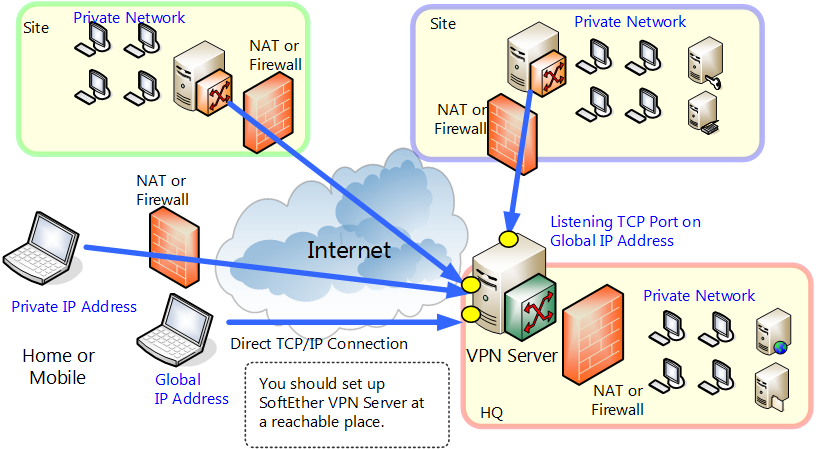 Understand your needs: Assess your specific requirements for using a VPN, such as accessing geo-restricted content, ensuring online privacy, or bypassing censorship. Determine the primary purpose of using a VPN server and IP address to guide your selection process.
Understand your needs: Assess your specific requirements for using a VPN, such as accessing geo-restricted content, ensuring online privacy, or bypassing censorship. Determine the primary purpose of using a VPN server and IP address to guide your selection process.
When it comes to safeguarding your online activities and ensuring a secure internet connection, using a Virtual Private Network (VPN) is an effective solution. However, with numerous VPN providers available in the market, selecting the right one can be a daunting task. To make an informed decision, it is crucial to assess your specific needs and requirements beforehand.
The first step in choosing the right VPN is to understand why you need it. Is it for accessing geo-restricted content, such as streaming services or websites? Or do you want to ensure your online privacy and protect your sensitive data from potential threats? Some individuals might also be seeking to bypass censorship imposed by their government or workplace. By clarifying your primary purpose for using a VPN, you can narrow down your options and find a provider that aligns with your specific needs.
If accessing geo-restricted content is your main goal, look for VPNs that offer a wide range of server locations. This will allow you to connect to servers in different countries, granting you access to content that is otherwise restricted in your region. Additionally, ensure that the VPN provider has fast and reliable servers to prevent buffering or lag while streaming or downloading content.
For those concerned about online privacy, it is essential to choose a VPN that has a strict no-logs policy. This means that the provider does not collect or store any data related to your online activities, ensuring that your browsing history remains private. Look for VPNs that are transparent about their privacy practices and have undergone independent audits to verify their claims.
Furthermore, consider the encryption protocols offered by the VPN provider. The industry standard is AES-256, which provides a high level of encryption to protect your data from potential eavesdroppers. Other security features to look out for include a kill switch, which automatically disconnects your internet connection if the VPN connection drops, preventing any unprotected data from being exposed.
In conclusion, selecting the right VPN requires understanding your specific needs and requirements. Whether it’s accessing geo-restricted content, ensuring online privacy, or bypassing censorship, determining your primary purpose will guide your selection process. Consider factors such as server locations, connection speeds, no-logs policy, and encryption protocols when evaluating different VPN providers. By taking the time to assess your needs and researching various options, you can find a VPN that offers the optimal combination of security, privacy, and functionality for your online activities.
Research server locations is an essential step when considering a VPN service provider. With numerous options available in the market, it is crucial to investigate and understand their server networks before making a decision. A key aspect to look for is a wide range of server locations across different countries and regions. This variety ensures that you have multiple options to connect to and can benefit from the advantages of a global network.
When examining server locations, consider the proximity to your physical location. Opting for servers that are geographically closer can result in faster connection speeds. For instance, if you are located in the United States, choosing a VPN provider with servers located within the country can offer better performance compared to servers located overseas. This closer proximity reduces the distance data must travel, resulting in lower latency and quicker response times.
Furthermore, having a diverse range of server locations allows you to access geo-restricted content more effectively. If you wish to bypass regional blocks and access streaming services or websites from specific countries, selecting a VPN provider with servers in those locations is vital. These servers act as intermediaries, masking your true location and making it appear as though you are accessing the content from within the desired country. This ability to circumvent restrictions opens up a world of possibilities, granting you access to a wider range of content and services.
In addition to geographical proximity and bypassing restrictions, server locations can also impact your overall online security and privacy. Opting for providers with servers in jurisdictions that prioritize privacy laws can offer an extra layer of protection. Countries with strong data protection regulations may be better equipped to safeguard your personal information. Therefore, it is crucial to research the server locations and the privacy laws governing them, ensuring that your data remains secure and confidential.
To summarize, researching server locations is a vital aspect of selecting a VPN service provider. A diverse range of server locations across different countries and regions offers numerous benefits, including faster connection speeds, easier access to geo-restricted content, and enhanced online security. Prioritize servers that are closer to your physical location to optimize performance, and consider the privacy laws governing the server locations to ensure your data remains protected. By thoroughly investigating and understanding server networks, you can make an informed decision and choose a VPN service provider that aligns with your specific needs and requirements.
Evaluate server performance: Look for VPN providers that offer server load information or performance metrics. Consider choosing servers with low latency and high bandwidth capacities to ensure a smooth and reliable VPN connection. Pay attention to server congestion and choose servers that are not overloaded with users.
When it comes to choosing the right Virtual Private Network (VPN) provider, there are several factors that need to be carefully evaluated. One crucial aspect to consider is server performance. To ensure a seamless and reliable VPN connection, it’s essential to choose a provider that offers servers with low latency and high bandwidth capacities.
The first step in evaluating server performance is to look for VPN providers that offer server load information or performance metrics. This data can give you insights into how well the servers are performing and how much load they can handle. By considering this information, you can make an informed decision about which VPN provider will offer the best performance for your needs.
Low latency is another critical factor to consider when evaluating server performance. Latency refers to the time it takes for data to travel from your device to the VPN server and back. A VPN server with low latency will result in a faster connection and minimal delays. This is particularly important if you use your VPN for activities that require real-time data transfer, such as online gaming or video conferencing.
Bandwidth capacity is equally important when assessing server performance. A server with high bandwidth capacity can handle more data transfer, allowing for faster download and upload speeds. This is especially crucial if you frequently engage in bandwidth-intensive activities, such as streaming high-definition videos or downloading large files. Choosing a VPN provider that offers servers with ample bandwidth capacity will ensure a smooth and uninterrupted online experience.
Server congestion is another aspect to pay attention to when evaluating server performance. If a server is overloaded with users, it can lead to slower speeds and decreased overall performance. To avoid this, opt for VPN providers that offer servers that are not overloaded with users. By choosing less congested servers, you can enjoy faster speeds and a more reliable connection.
In conclusion, evaluating server performance is a critical step in choosing the right VPN provider. Look for providers that offer server load information or performance metrics to assess how well their servers are performing. Additionally, prioritize servers with low latency and high bandwidth capacities to ensure a smooth and reliable VPN connection. By considering server congestion and selecting servers that are not overloaded with users, you can further enhance your online experience. Take the time to evaluate these factors, and you’ll be well on your way to enjoying a seamless and efficient VPN connection.
Consider IP address variety: Some VPN providers offer a variety of IP addresses to choose from, including shared and dedicated IPs. Shared IPs are used by multiple users simultaneously, while dedicated IPs are assigned exclusively to a single user. Assessing your needs for anonymity and stability is crucial in determining whether shared or dedicated IPs are more suitable for your purposes.
Shared IPs are a popular choice for those seeking a high level of anonymity. When you connect to a VPN using a shared IP, your online activities are mixed with those of other users, making it difficult for anyone to trace your actions back to you. This added layer of privacy is particularly beneficial for individuals who frequently engage in activities that may be subject to monitoring or censorship, such as journalists or activists. Additionally, shared IPs can provide an extra buffer against targeted cyber-attacks, as it becomes harder for malicious actors to pinpoint your specific location.
On the other hand, dedicated IPs offer increased stability and control. If you require a consistent online presence, such as running a business or accessing specific services that restrict access to known IP addresses, a dedicated IP may be the better choice. With a dedicated IP, your online activities are associated with a single, unique address, which can enhance your browsing experience and reduce the risk of encountering any restrictions due to IP address blockages. This can be particularly important for remote workers or individuals who rely heavily on accessing location-restricted content.
Considering your specific needs and preferences is crucial when deciding between shared and dedicated IPs. If maintaining a high level of anonymity is paramount, then a shared IP can be an excellent option. However, if stability and control are more important, a dedicated IP may be the preferred choice.
It’s worth noting that some VPN providers offer the flexibility to switch between shared and dedicated IPs based on your requirements. This can be advantageous as it allows you to adapt your IP address configuration to different situations. For example, you might choose a shared IP for general browsing, but switch to a dedicated IP when accessing online banking or other sensitive activities that require a higher level of security.
In conclusion, the variety of IP addresses offered by VPN providers gives users the opportunity to tailor their online experience based on their specific needs. Whether you prioritize anonymity or stability, assessing your requirements is essential in determining whether shared or dedicated IPs are more suitable for your purposes. Remember to choose a reputable VPN provider that offers the level of IP address variety and flexibility that aligns with your preferences and priorities.



